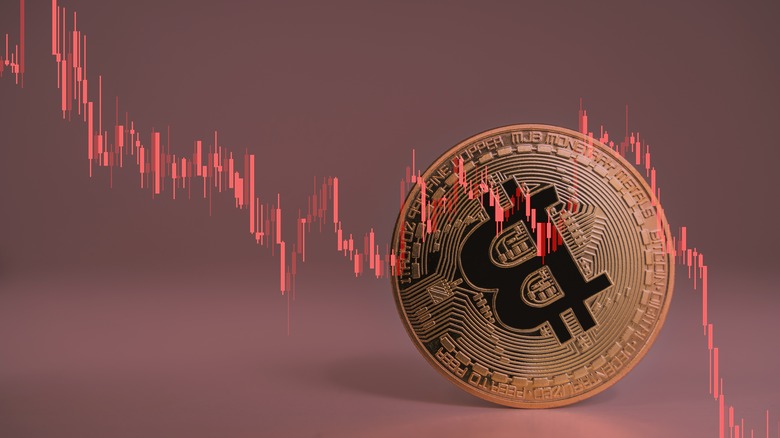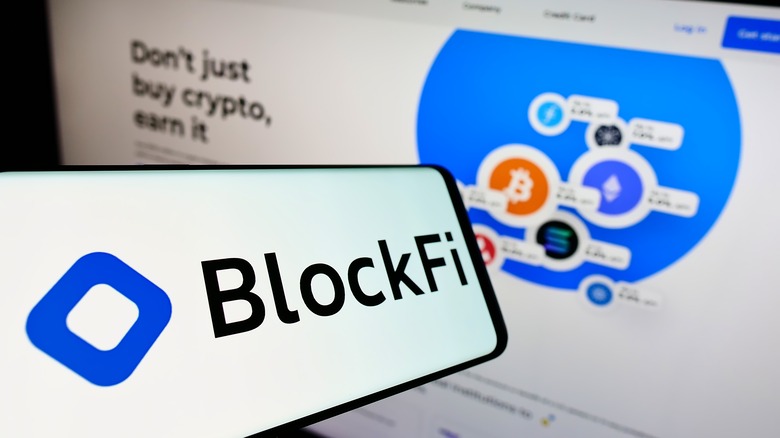What Sam Bankman-Fried's Failure Means For Crytpo
FTX's collapse is likely to have wide-ranging implications for the people who invested in the company, the users who trusted it with their savings, and the cryptocurrency market as a whole. Founder Sam Bankman-Fried, who served as the company's CEO until things went south, may end up having to explain his role in the company's downfall to federal regulators and possibly a jury. The company itself is being probed by a number of government agencies.
The downfall of FTX happened incredibly quickly. It emerged the majority of its sister company Alameda Research's value was based on FTX's own cryptocurrency, and user funds may have been channeled from the exchange to fund Almadea's ventures. Rival crypto exchange and former FTX shareholder Binance was involved in bailout talks, but pulled out when allegations of customer funds being mishandled came to light. To make matters worse, a hack occurred shortly after FTX's bankruptcy, reportedly adding hundreds of millions to billions of dollars in extra losses to the billions in customer funds that had already disappeared. Some commentators believe the hack was an inside job, a claim that FTX denies.
If one of the more recent reports is to be believed, up to one million individuals and businesses may have lost out due to FTX's bankruptcy. Those using the platform to engage in crypto trading could be the hardest hit as they are likely to be designated as "unsecured creditors." In layman's terms, an unsecured creditor is someone who lends out money without securing collateral. This reduces the individual's chances of getting any of that money back should things go wrong. While FTX's users are in for a rough time, the crypto market as a whole is likely to see major changes as a result of the collapse.
Investors may have lost confidence in crypto
FTX's collapse comes while the industry is suffering through a crypto winter, which is the specific term crypto investors use to describe a bear market. The value of digital currencies had already seen a sharp decline since it peaked in late 2021, and the collapse of one of the world's biggest exchanges caused prices to plummet even further. As CNN explains, faith in cryptocurrencies was already low, and the end of FTX may be enough to make it collapse completely.
In recent years, some investors have been attracted to cryptocurrencies for the same reason other people have been put off: their volatility. Just like an evening at a casino, the extreme and almost random swings in value can see an individual make a fortune in a short space of time, and lose everything just as quickly. Criticisms of crypto have long included references to the fact most currencies aren't actually backed by anything. The word scam has also been applied to currencies and has been correctly used in a lot of cases.
The seemingly limitless amount of coins, the ability of influencers to generate hype, and the lack of regulation have made it fertile ground for pump-and-dump schemes (via Trader's Union). Larger exchanges have long been the more trustworthy face of the industry, and are responsible for drawing millions of people into the market. Coinbase claims to be responsible for 108 million users alone. If criminal wrongdoing is found to be the reason one of the biggest exchanges collapsed, there could be a domino effect that sends the crypto industry back to the stone age — or back to around 2012, at least.
We're likely to see increased regulation
Bankman-Fried is unlikely to take many positives from the collapse of his company. One small victory could involve the implementation of regulations he has advocated for over the years. While there are some laws regarding the trading and possession of cryptocurrency, and those laws vary between jurisdictions, the crypto industry as a whole largely remains unregulated. This is partially down to some lawmakers not quite understanding the industry, and also due to a large section of the community's resistance and opposition to the government intervening in the crypto market. Some idealists believe a cryptocurrency's main benefit is its decentralization and independence from government influence. In their eyes, government intervention and regulation take that independence away.
The former FTX CEO had publicly backed regulation on several occasions, including during a testimony he gave to congress in 2021. Bankman-Fried believes existing financial regulators could work alongside independent organizations formed by the industry itself. One area he highlighted was stablecoins, which are cryptocurrencies that have their price tethered to something like the U.S. dollar. The former "King of Crypto" called for greater transparency and increasing the authorities' abilities to audit stablecoin providers and ensure their digital currency is properly backed. Just as the banking industry saw increased scrutiny and calls for tighter regulations following the collapse of Lehman Brothers and the subsequent financial crisis in 2008, the crypto industry is facing similar calls. Given the amount of money lost and the number of people impacted, it will be increasingly difficult to escape tighter regulations — especially if investigators uncover clear evidence of large-scale fraud.
Other exchanges may collapse, too
Before its quick and spectacular demise, FTX and its CEO served a number of interesting functions in the crypto community. You could argue that Bankman-Fried played a part in keeping the industry going during its rough periods. FTX itself served as a "lender of last resort" and acquired or bailed out other exchanges and crypto-based businesses that were struggling during the recent crypto winter. When justifying some of the bailouts he greenlit, Bankman-Fried said (via CNBC): "It was important that the industry gets through this in one piece. It's not going to be good for anyone long term if we have real pain and real blowouts — it's not fair to customers and it's not going to be good for regulation."
One of the more high-profile bailouts FTX was involved in concerned BlockFi, a company that has customers deposit their crypto on its site, which it then uses to fund loans. The interest from those loans is how the company makes its money and pays its customers for the use of their cryptocurrency. Under the terms of the bailout, FTX had the option to acquire BlockFi for up to $240 million. Now FTX is gone and it's not guaranteed another company will step in to help other struggling exchanges.
This could lead to more crypto-based companies going bust, which in turn will lead to more regulation, and an increased number of investors opting not to take a gamble on digital currency. Ironically enough, after bailing out several other companies, FTX was unable to drum up the $9 billion it needed to stay solvent in the days leading up to its collapse — though that may be more to do with the nature of the company's downfall than a lack of camaraderie in the crypto community.



